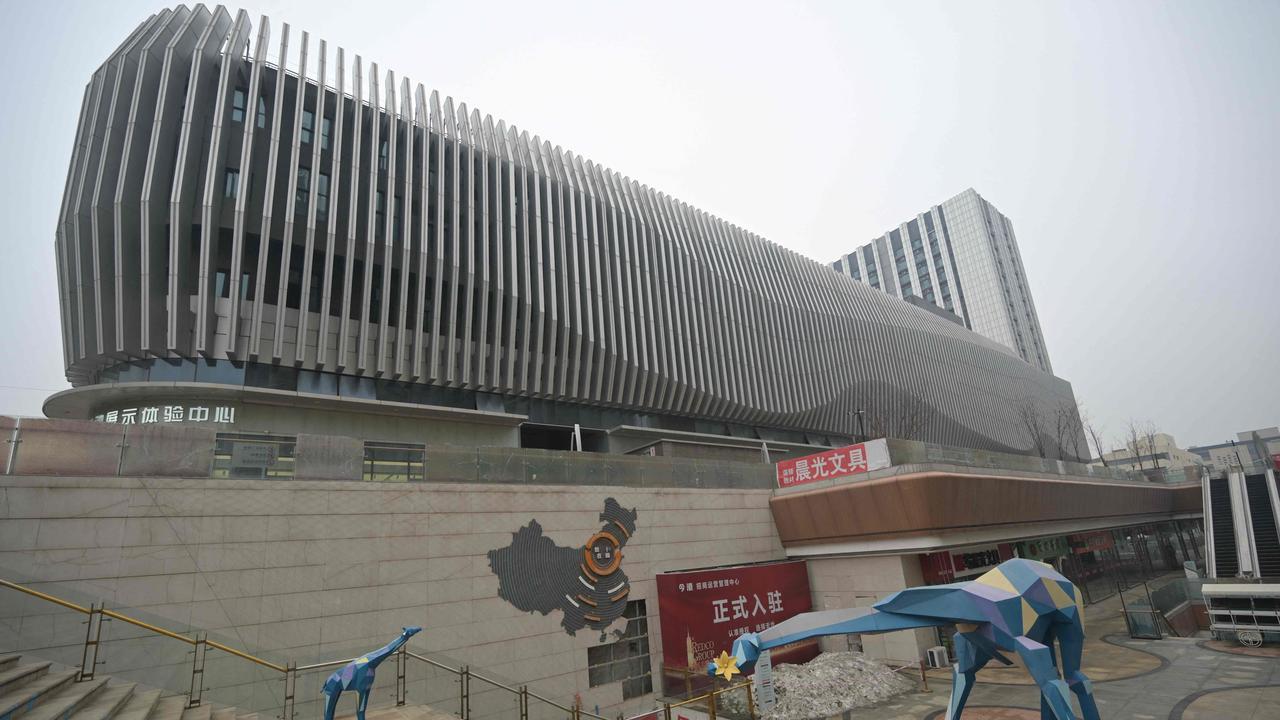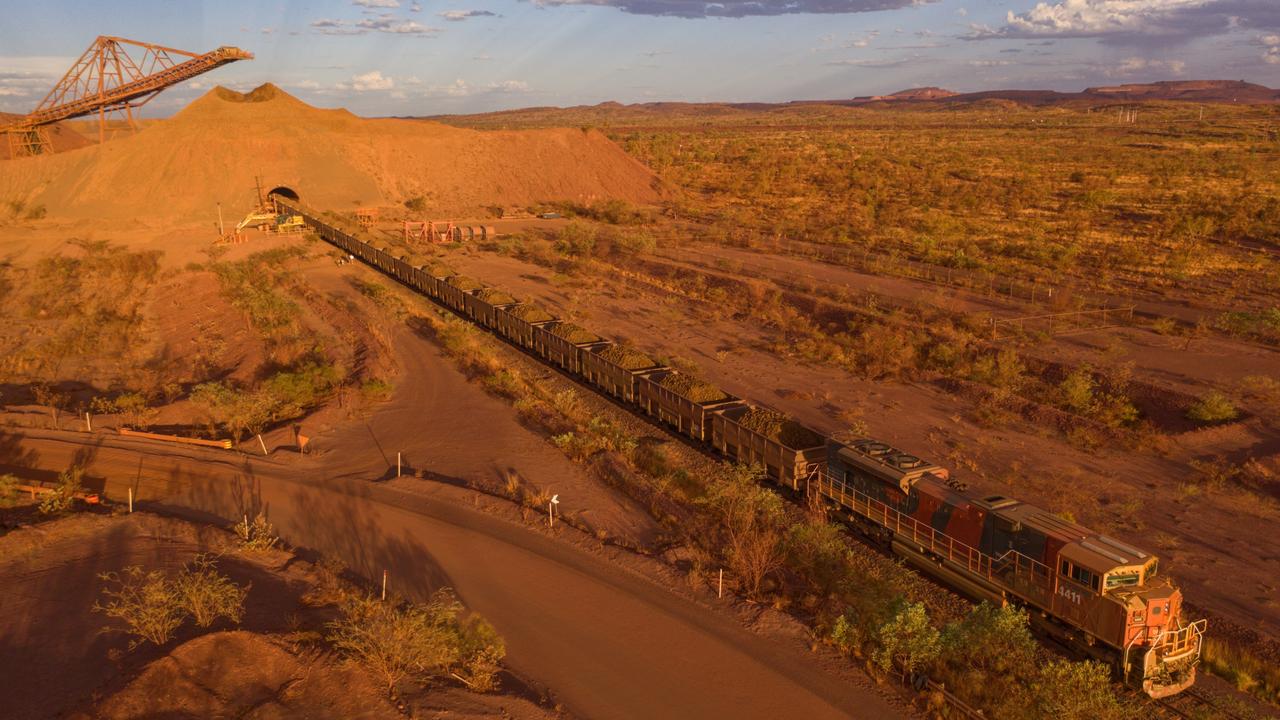Australia’s 30-year iron ore boom ends: ‘It’s over’
Australia has managed to escape the pain of the world’s economic woes over 30 years for one reason. Now we’re staring down the barrel of a new reality.
Everyday Aussies could see tax increases and cuts to services as a devastating collapse in commodity prices grinds our 30-year gravy train to prosperity to a halt.
For decades Australia has managed to escape the worst of several global economic downturns thanks to our abundant resources, particularly iron ore which the nation’s miners sold $136 billion of last year alone.
For almost 30 years, prices have remained high and China has been buying it at an insatiable rate to fuel its rapid growth.
From the late 1990s to earlier this year, iron ore prices jumped nearly tenfold. That’s more than any other major commodity.
This resulted in Australia sailing more smoothly through the ups and downs of the global economy and billions of tax dollars coming in every year to fund our services — including health, transport and schools.
It’s no wonder we’re known as the Lucky Country.
However, that luck is about to change in a big way — with one economic expert warning “it's over”.
The price of iron ore, which is a key component in steel, has dropped by about 35 per cent since the year began. It has fallen already below $100 a metric ton, down 55 per cent from its all-time high of almost $220 a ton set in 2021.
Author Javier Blas of Bloomberg wrote: “The greatest commodity boom thus far of the 21st century has ended. China inflated it — and China, too, is bringing it down.
“The reason? The shift in its economic model to services and away from heavy investment and housing construction.”

The economic situation in China is continuing to worsen — with some particularly bad news emerging in the past couple of weeks.
Benchmark prices for iron ore fell 9 per cent last week after top steelmaking firm Baowu finally admitted there would be no significant stimulus package from its Chinese Communist Party owners.
Its chairman Hu Vangming warned that the “winter” of steel demand from China’s struggling construction industry would be “longer, colder and more difficult than we expected”.
During previous downturns, China saved its economy — and by extension iron ore and steel sectors — by firing up into a debt-fuelled binge of construction.
Given the warnings from steelmakers, it appears unlikely that China will do so this time.
In a chilling warning to Australians, experts believe that unless there is a major turnaround, the federal government will soon be forced to make very tough decisions.
The government itself has admitted this week in treasury analysis that plummeting prices could cost the federal government $3 billion in revenue, which could push the budget into deficit this financial year.
“This is exactly why we take such a cautious and conservative approach to Treasury’s forecasts for resource prices and revenue,” Treasurer Jim Chalmers told The Australian this week.
“We’re following these developments very closely because of their potential impact on our economy and our budget.”
The RBA is also watching the situation very closely.
Governor Michele Bullock told the House Economics Committee in Canberra on Friday that China was “a risk that’s very pertinent for us”.

She said its economy was still “performing OK” — as it was hitting its target of roughly 5 per cent growth. However, she said they still had a “very big drag from the problems in their real estate sector there”.
“China is really important for us because of our trade relationship … [it’s our] biggest trading partner and it’s very important in particular for the prices of the commodities that we export, in particular iron ore,” she said.
“So that is something that we’re watching quite closely because developments in China can have quite a big impact on the way our trade develops, and therefore on our growth.”
Tim Harcourt, an economics professor at the University of Technology Sydney warned that — if iron ore prices continue to fall — the federal government will “have less revenue to spend”.
Treasury analysis found that with iron ore prices dropping faster than expected, the Albanese government faces having less revenue and a bigger deficit as it heads into an election year in 2025.
“So the government’s either got to reduce its spending or raise taxes domestically,” Mr Harcourt told ABC Business. “So it’s not good news for Australian taxpayers.”
Given how tough a lot of Aussies are doing it at the moment, trimming any public spending will be no easy task.
“They’ve got ways of raising other parts of revenue and trimming education and health in a very careful way so it doesn’t hurt people, particularly at the bottom end of the spectrum,” he said.
There is however, one thing that could stop this happening — a rebound in iron ore prices.
In his analysis for Bloomberg, Mr Blas said this was unlikely given the sector’s unbreakable reliance on China.
China produces more than half the world’s steel. The next biggest steelmaker — in a very distant second place — is India, but it also has huge iron ore resources so doesn’t need any from Australia for years to come.

There’s also the problem of a surplus of iron ore globally — one that Macquarie Bank has grimly named “one of the worst” ever.
“The slowdown in China comes, crucially, as a new generation of large, low-cost mines in Australia and Africa start production,” Mr Blas said. “That mix is the problem because it means the iron ore market, already oversupplied in the first half of this year, would remain in surplus in 2025, 2026, 2027 and probably 2028, too.”
Luckily in the short term for Australia at least, the Treasury made its spending decisions on the conservative assumption that iron ore would be much lower at $US65 a tonne. As of Thursday morning, it is selling for just under $98 a tonne.
So, for now at least, the gravy train that has seen Australia prosper for so many decades may be slowing down — but it is not out of action just yet.






